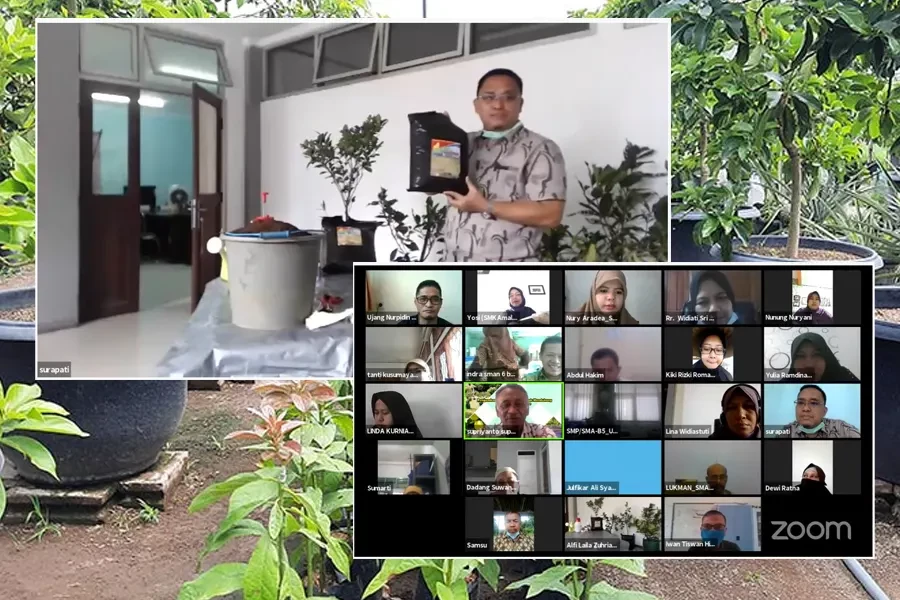To learn about best practices for cultivating potted fruit tree plants, especially to support agro-eco edu-tourism in their respective institutions, 50 participants from 34 senior high schools, vocational high schools, Islamic high schools and Islamic Boarding schools participated in the training course on “Potted Fruit Tree Plants Cultivation to Support Agro-Eco Edu-Tourism”, virtually organized by SEAMEO BIOTROP, on 18 - 19 November 2020.
SEAMEO BIOTROP has had successful experiences in running the SMARTS-BE program (Sekolah Mandiri Produksi Tanaman Sayur dan Buah Edukasi/Agriculture Vocational School on Vegetables and Fruits Orchards Establishment), in which SEAMEO BIOTROP facilitated over 36 vocational high schools throughout Indonesia to revitalize fruits and vegetables orchards and to produce various fruits and vegetables derived products.
SEAMEO BIOTROP believes that it is necessary to share those experiences and expertise to the neighboring schools in Bogor, especially in supporting the Agro-Eco- Edu-Tourism, an activity which entails a visit to active farms, agriculture land, or agribusiness operations, or even actively participate and experience the agricultural process on site.
In his opening remarks, Mr Adi Mulyanto representing Bureau of Collaboration and Public Relation (Biro Kerjasama dan Hubungan Masyarakat - BKHM), the Ministry of Education and Culture of the Republic of Indonesia stated that the nurturing process of potted fruit tree will also develop students' characters, so that they will have a better understanding about nature. He also stated that this training course is the perfect initial step in improving health and immune system, and at the same time the training course will also have positive impacts economically.
This 2-day online training covered several topics, namely: 1. Overview of SMARTS-BE program by Dr Supriyanto; 2. Urban Farming to Support Family Food Security by Dr Irdika Mansur; 3. Agro-Eco- Edu-Tourism Planning and Design by Mr Armaiki Yusmur, MSi; and 4. Potted Fruit Tree Plants to Support Agro-Eco- Edu-Tourism by Mr Surapati, SP.
Eighteen senior high schools, 8 vocational high schools, 4 Islamic high schools, and 4 Islamic boarding schools participated in this training course.
After joining this training course, the participants are expected to implement the knowledge gained during this training course in their respective schools, as part of the schools’ activities, or even as a part of teaching curriculum. Ultimately, it is expected that the students will have skills and knowledge required by industries and societies. (hcn)
 Sunday, 06 December 2020 on 9:17pm
Sunday, 06 December 2020 on 9:17pm
